Tuesday Feb 24, 2026
Tuesday Feb 24, 2026
Wednesday, 24 August 2016 00:01 - - {{hitsCtrl.values.hits}}
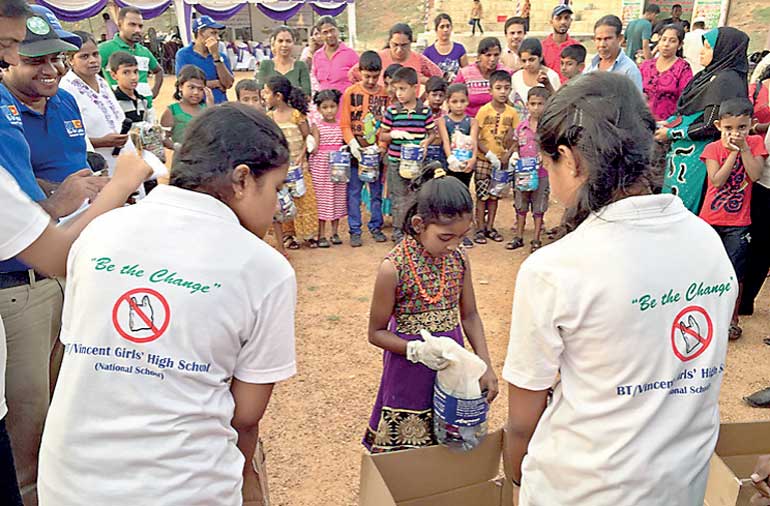
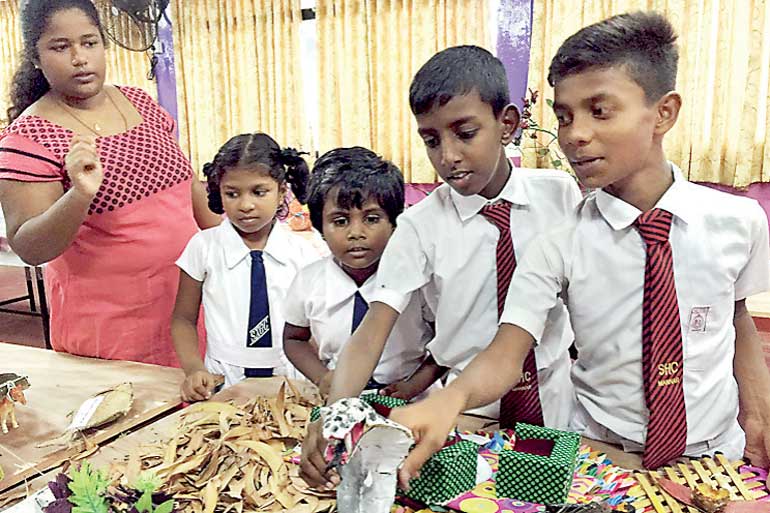
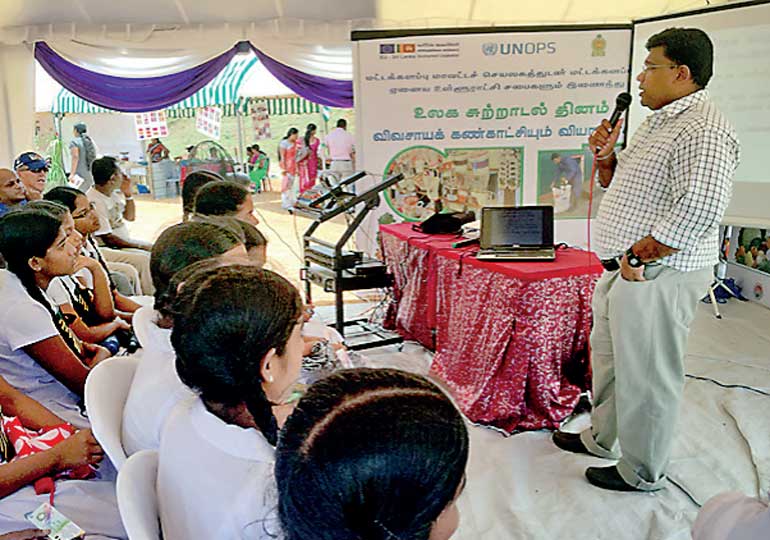
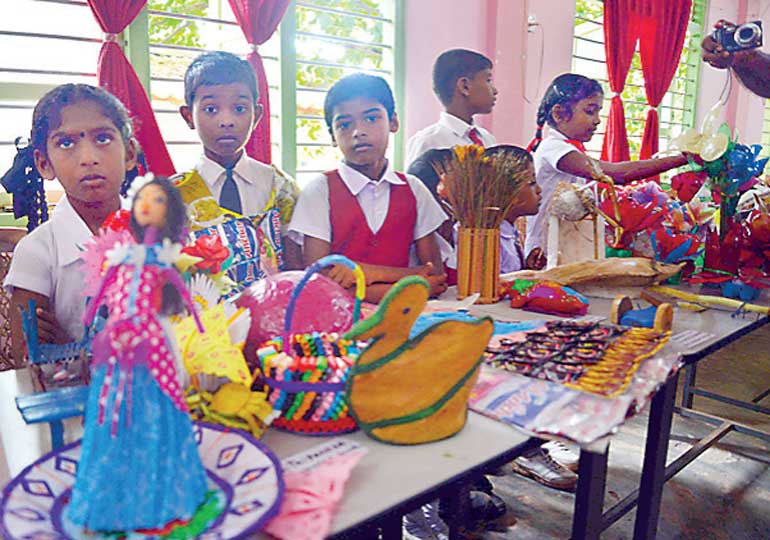
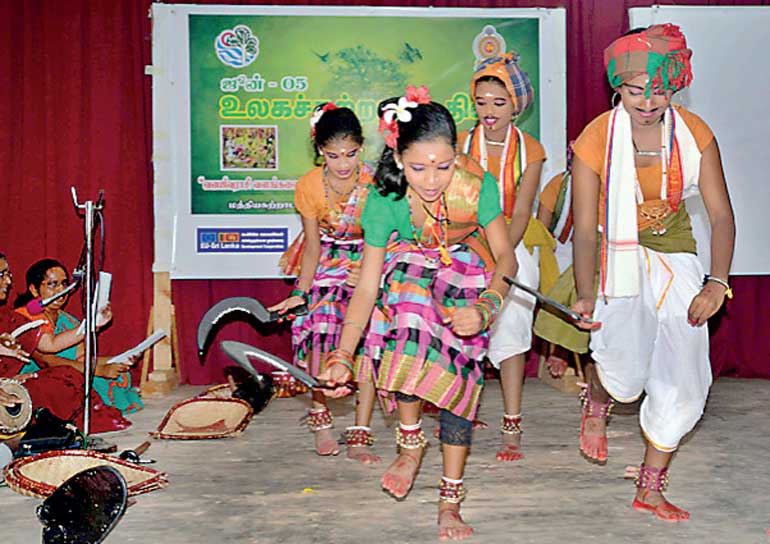
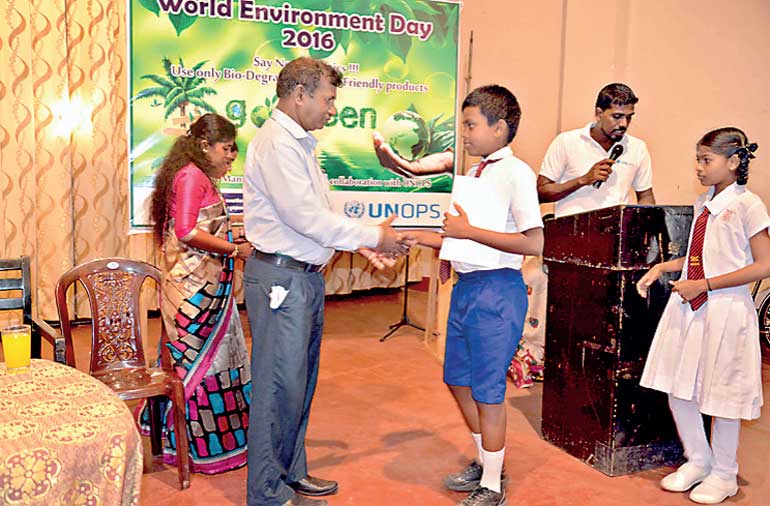
WED 2016-Mannar -Waste-to-Art competition 4
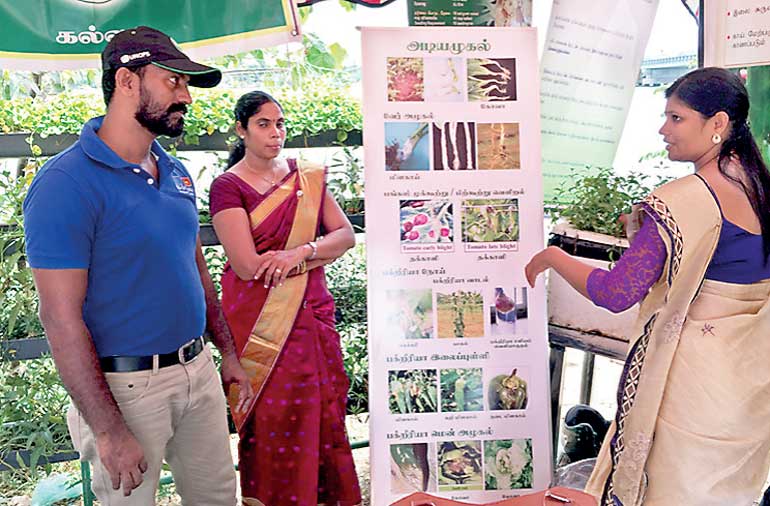
Batticaloa-UNOPS, FAO & Agriculture Department cooperate for
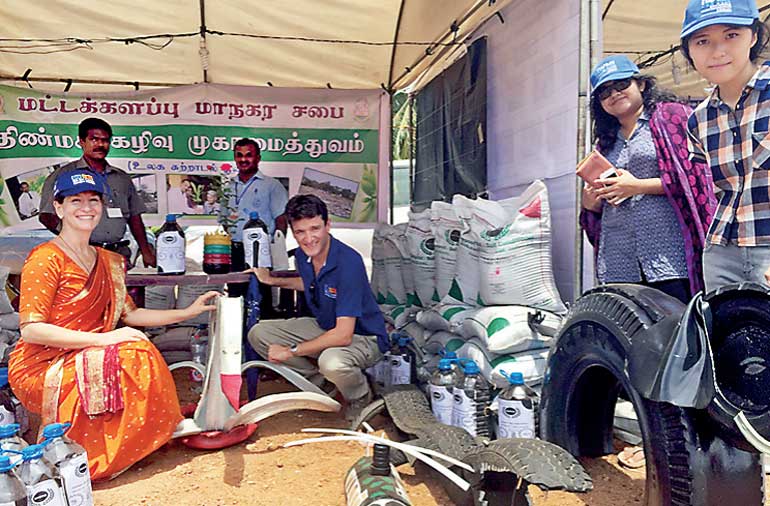
Batticaloa-UNOPS & IFC sponsor AgriFair on occasion of WED 201
Supported by the European Union (EU), the United Nations Office for Project Services (UNOPS) partnered with Government organisations and other development partners to build awareness on environment protection issues through art by organising a series of community participation activities in Batticaloa, Mannar and Vavuniya districts to celebrate World Environment Day 2016.
These activities were implemented with the financial assistance that is being provided through the European Union Support to District Development Programme (EU-SDDP), with a total financial envelope of EUR 60 million. The program aims at supporting the Government of Sri Lanka’s thrust for economic and social development in seven conflict-affected districts covering half a million people.
UNOPS, through the work of EU-SDDP is promoting the concept of ‘3R’ in Integrated Solid Waste Management (ISWM) which includes (1) Reducing the amount of waste produced, (2) Reusing discarded items, and (3) Recycling waste items so that they can be used in a different form. All these steps require a high level of community participation, which only happens when peoplebetter understand the role they play in the process. This is why increasing community awareness on theirresponsibilities in safeguarding the environment is an integral component of the work done by UNOPS in Sri Lanka, especially in ISWM.
The events to mark World Environment Day were organised to raise awareness of the public on issues relating to environment protection and the role of communities in promoting sustainable practices such as organic agriculture and proper waste management to safeguard Sri Lanka’s environment.
UNOPS was joined by IFC, a member of the World Bank Group, in organising an ‘Agri Fair and Exhibition’ (agricultural fair) in Batticaloa that promoted the practice of organic agriculture, and the use of locally produced food and household items. More than 5,000 people from all walks of life including students, farmers, businessmen and local producers took part in the fair over three days. Information on natural soil conditioners and fertilisers, organic food production, green technology like biogas production, and waste reduction was made available to the public who visited the fair.
In addition to UNOPS and IFC, partners including the Food and Agricultural Organization of the UN (FAO), International Water Management Institute (IWMI), local and international non-governmental organisations such as Janathakshan, World Vision and Oxfam, all Local Authorities from Batticaloa District and various Government departments were present at the fair to share their experiences.
The activities to mark World Environment Day in Vavuniya were carried out in partnership with the Central Environmental Authority (CEA) and the Zonal Education Department where an art competition exhibition on ‘Re-using Solid Wastes’ was organised with the participation of all schools in Vavuniya District. The exhibition showcased art and useful items made from waste items created by 150 students from 60 schools. At the event, school children also presented cultural dances and theatre performances elaborating on the themes of ‘Environment and Life’.
In Mannar, UNOPS partnered with the Urban Council and the Zonal Education Department and organised a competition between school children from all local schools to come up with creative handicrafts made out of waste material. This was met with much enthusiasm by the school children, and a public exhibition was held in the Town Hall with more than 200 items produced by the children.
Children and young people comprise about 23% of Sri Lanka’s population and will be the decision-makers of the future. Their way of thinking about the environment is already shaping the country of tomorrow. The education and sensitisation of today’s youth in environment and sustainable development has been widely recognised as critical to sustainable development. As children play such a particular role as catalytic change makers in their families and society, UNOPS closely cooperates with the education sector for its environmental education and awareness raising activities.
The enthusiasm that was shown by all participants in the events highlighted the importance in working with children, the youth and the entire communities in addressing the environmental challenges in the country as a whole.
Under the EU-SDDP framework, UNOPS is contributing to the overall program objective through the construction and rehabilitation of social infrastructure and specific capacity building activities in Batticaloa, Mannar and Vavuniyato benefit more than 400,000 people.